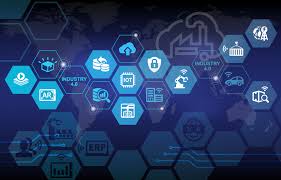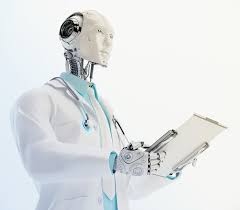Source: arcweb.com
ARC’s Harry Forbes, Research Director for Automation, interviewed Christine Boles, Intel’s Vice President of the IOT Group/General Manager, Industrial Solutions Division, at the ARC Industry Forum in Orlando. Discussions ranged from Intel’s position in the value chain for industrial systems, new technologies, and AI in manufacturing. Intel is a provider of many products and technologies, with an ecosystem of partners that utilize their solutions. These partners, who are typically industrial OEMs or IT OEMs, ultimately bring those solutions to manufacturers, utilities, etc. This post highlights the key points and takeaways of their discussion. The interview can be viewed here and/or on YouTube.
Industrial Impact of New Technologies
From an industrial perspective, first you have to consider the direction in which the factories are heading, explained Christine. “Factories are really on a path to more autonomous types of operations,” she said. So, the technologies deployed should help the factories achieve their objectives. Artificial intelligence (AI) is one of the big areas. But one has to understand “how to utilize technologies, like machine vision, machine learning, and even getting into the deep learning, to really know what’s happening in an operation step, and then make those adjustments,” said Christine. In her opinion, the other technology that’s really going to change things is 5G, and having the capability for a wireless infrastructure to help with that flexibility in more autonomous factories.
Artificial Intelligence and 5G in the Industrial Space
“Artificial intelligence has entered many diverse market segments today,” said Christine. “And, it’s even happening in factories relative to machine learning and bringing those insights onto the factory floor,” she said. Citing an example, she said that edge insight software was developed, utilizing Intel processor technology underneath the OpenVINO* toolkit, and that helps optimize those functions for the hardware and insight software. Many companies and system integrators have deployed this technology. In the automobile industry, an aluminum die-cast manufacturer for transmission parts previously could detect 60 percent of the defects through manual inspections. By utilizing a machine vision and machine learning, they are now getting close to 100 percent defect detection at any given process step. Further, she said that the customer is now considering applying this across the line and expanding the capability for different functions – using the same platform, but with different algorithms.
*OpenVINO toolkit facilitates the optimization of a Deep Learning model from a framework and deployment using an inference engine onto Intel hardware.
Artificial Intelligence and 5G in Manufacturing
“AI in manufacturing is in its early stages, relative to manufacturers realizing what they can do with it. But I actually think it’s ready, relative to utilizing that learning at the edge, close to the operations,” said Christine. Industrial adoption is already happening in a manner that companies get those insights close to the places they need them. However, these AI solutions will become more widespread in manufacturing when manufacturers are willing to bring in that capability, explained Christine. It’s also going to be a learning process. Manufacturers are bringing data science capability into their operations and realize what needs to be done. She believes that “When you have both the workforce and the technology, it’s going to start happening more and more.”
“5G is going to take a bit longer (few years) to be adopted, because it requires the next generation specification with the industrial capabilities in it,” said Christine. However, 5G will help factories become more flexible.
The 5G Benefits
Harry asked, “Could you drill into that a little bit more? What do you see 5G adding versus Wi-Fi?” Christine responded that manufacturers see the benefit of a private 5G network. However, it’s not a 5G versus Wi-Fi situation. “Now, there are some of those capabilities coming into the Wi-Fi space. So I do believe we’re going to actually have them working together. And they’re going to be working together on more deterministic operations in a wireless approach.”


